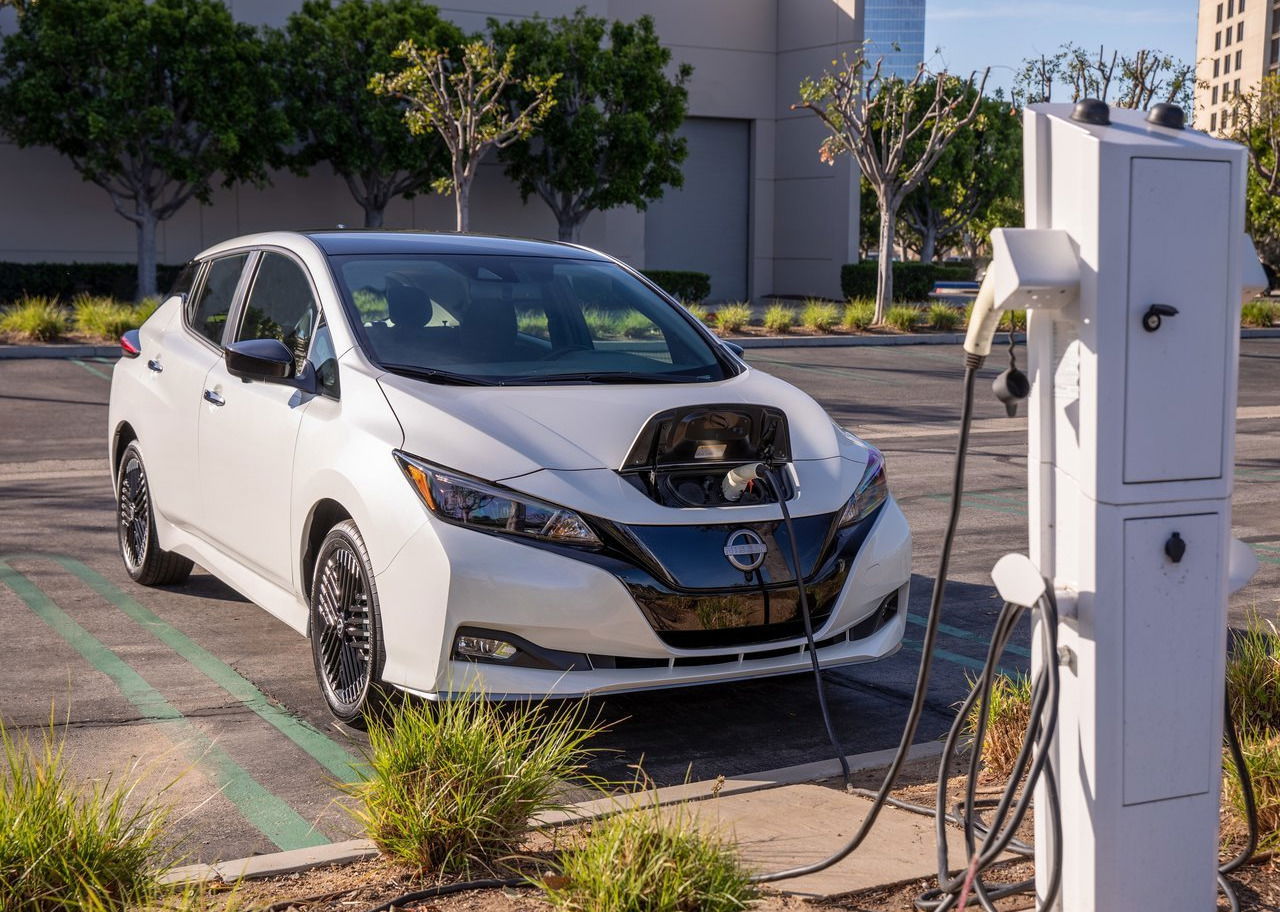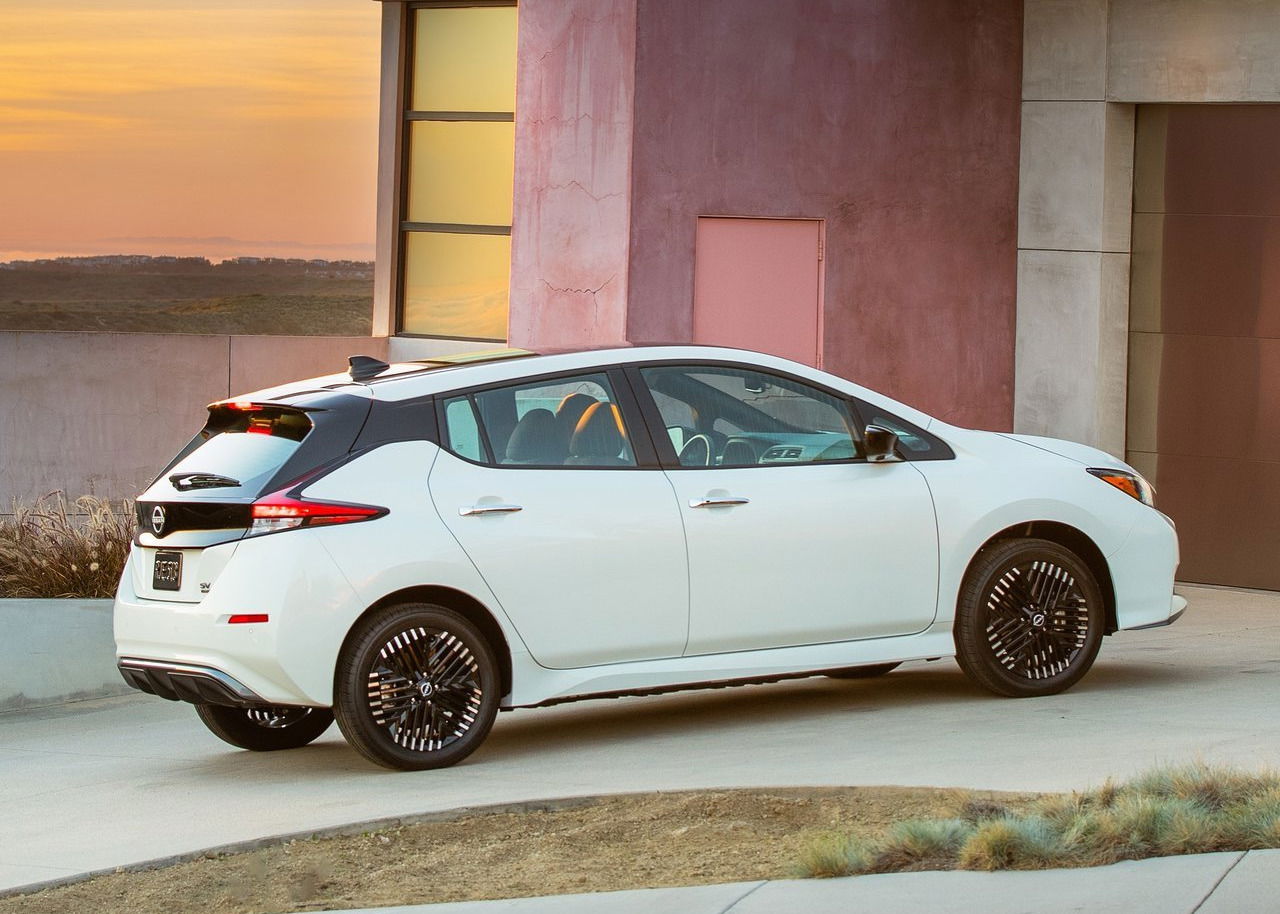- 2024 Nissan LEAF qualifies for up to $3,750 federal EV tax credit.
- A partial tax credit incentive is available for LEAF models from March 6.
- Nissan offers a $3,750 leasing incentive for 2024 and 2023 LEAF models.
- The reinstatement of LEAF's eligibility highlights the brand's dedication to EV innovation.
The electric vehicle market gets a notable boost with the latest announcement from Nissan. On March 6, 2024, the automaker announced that the 2024 Nissan LEAF has reclaimed its eligibility for a federal EV tax credit, albeit at a reduced amount of up to $3,750.
This development marks a positive step for Nissan and EV enthusiasts alike, though the amount is a significant fall from the previous $7,500 federal tax credit qualification.
The electric vehicle tax credit, or the EV credit, is a non-refundable tax credit offered to taxpayers who purchase qualifying electric or plug-in hybrid vehicles. Nonrefundable tax credits lower your tax liability by the corresponding credit amount but do not result in a refund of any excess credit amount.
In 2024, taxpayers can opt to either claim the tax credit on their federal returns or transfer the credit to an eligible dealership.
For those who choose to transfer the credit, dealerships would then be able to either lower the cost of the vehicle by the corresponding credit amount or provide the consumer with a cash equivalent.
Nissan's decision to once again qualify the LEAF for the EV tax credit comes after a period of ineligibility due to specific battery components sourced from entities identified as "foreign entities of concern," as outlined in the 2022 Inflation Reduction Act.
Reinstating the LEAF's eligibility represents a key milestone for the popular electric hatchback.
Nissan Energy Share Revolutionizes Energy Management Across Japan's Corporate and Government Sectors
According to Nissan's official statement, the 2024 Nissan LEAF vehicles manufactured in 2024 and sold on or after March 6 are now eligible for a partial U.S. federal EV tax credit, subject to meeting all necessary purchase and income qualifications, as stipulated in the Internal Revenue Code Section 30D.
While the EV tax credit for the Nissan LEAF is now limited to $3,750, it still serves as a significant incentive for prospective buyers looking to make the switch to electric vehicles.
The LEAF's battery components are assembled in Smyrna, Tennessee, further emphasizing Nissan's commitment to meeting the regulatory requirements for the tax credit.
Notably, Nissan is also offering a $3,750 incentive to customers leasing any 2024 or 2023 LEAF model, providing additional support for those interested in experiencing the benefits of electric driving without the full upfront cost.
Reintroducing the Nissan LEAF into the pool of eligible vehicles emphasizes the EV market's evolving landscape in response to changing regulations.
While the full $7,500 federal tax credit remains available for select electric vehicles, including models from Chevrolet, Chrysler, Ford, Tesla, and Volkswagen, the partial credit for the LEAF continues to enhance its appeal to a wider range of consumers.
As the automotive industry keeps transitioning towards sustainable mobility solutions, offering credit incentives is an increasing boon for the increasing number of car shoppers looking to go electric.
In the United States, new EV shoppers are offered up to $7,500 in tax credits pending eligibility, while shoppers browsing the used EV aisles may receive up to $4,000 in tax breaks towards their purchase.
Reinstating the Nissan LEAF's eligibility for the EV tax credit is a positive milestone, considering that fewer brands are eligible for tax credits in 2024 thanks to tighter battery manufacturing restrictions.
These Are The Top-Ten Cheapest Electric Cars Money Can Buy Right Now
2024 Nissan Leaf: What You Need To Know

The widely popular Nissan Leaf is already a lot more attractive in 2024, even without the tax breaks.
Starting at around $28,000 (MSRP), the Leaf S and Leaf SV PLUS feature a 40kWh lithium-ion battery with a 110-kW electric motor and a 60kWh lithium-ion battery capacity with a 160-kW electric motor, respectively.
The 40 kWh powertrain delivers a humble 147 horsepower and 236 lb-ft of torque, while the SV PLUS model makes a respectable 214 horsepower and 250 lb-ft of torque. The 2024 Leaf S returns an EPA-estimated 149 miles of range, while the SV PLUS delivers an enhanced 212 miles.
Using a Quick Charge Port, owners can get the 2024 Nissan Leaf S’ battery juiced to 80% in 40 minutes. The SV PLUS achieves the same level of charge in 60 minutes. Nissan delivers the car to shoppers with a portable charging cable for standard 120-volt or 240-volt outlets.
Also, Nissan offers an all-inclusive ownership package called EV Carefree+ for integrated maintenance, charging assistance, EV Battery Health Assurance, and EV Roadside Assistance.
The Leaf is not among the under-$20,000 new cars in 2024 but it offers a rewarding list of convenience features including the NissanConnect infotainment system with an 8-inch color display, Apple CarPlay, Android Auto, SiriusXM, four USB ports, EV-specific functions like charging timer and HVAC timer, Nissan Door-to-Door Navigation, NissanConnect Services, and NissanConnect EV on the SV PLUS grade.
The car also comes with safety features like Nissan Safety Shield 360 with six active driver assistance technologies.
EV Tax Credit: What You Need To Know

The electric car tax credit, often referred to as the EV (electric vehicle) tax credit, is a government incentive designed to encourage consumers to purchase electric vehicles by reducing the overall cost through a tax credit.
This initiative is part of a broader strategy to reduce greenhouse gas emissions by promoting cleaner, more sustainable transportation options. In the United States, the federal electric car tax credit can provide up to $7,500 in tax relief for qualifying new cars.
The credit amount varies based on the vehicle’s battery capacity. Generally, the larger the battery, the larger the credit. However, the EV tax credit is subject to several limitations and phase-out rules.
Once a car manufacturer has sold 200,000 qualifying vehicles, the tax credit for that manufacturer's vehicles begins to phase out. After reaching this threshold, the credit is reduced over time until it's eventually eliminated.
Not all electric or plug-in hybrid vehicles are eligible for the full credit. The vehicle must meet specific requirements set by the IRS, including battery capacity and gross vehicle weight limits.
Beginning January 2023, used EV and FCV (fuel cell vehicle) shoppers can now qualify for up to $4,000 in tax breaks if the vehicle costs less than $25,000 and comes with a clean credit.
The credit is non-refundable, meaning it can reduce your tax bill to zero, but you won't receive a refund if the credit is more than your tax liability. In some cases, there may be income restrictions that could limit credit availability.
To claim the electric car tax credit, you need to fill out IRS Form 8936 and attach it to your federal tax return. The 2024 Nissan LEAF's revised tax credit eligibility should help incentivize more consumers to embrace electric vehicles.